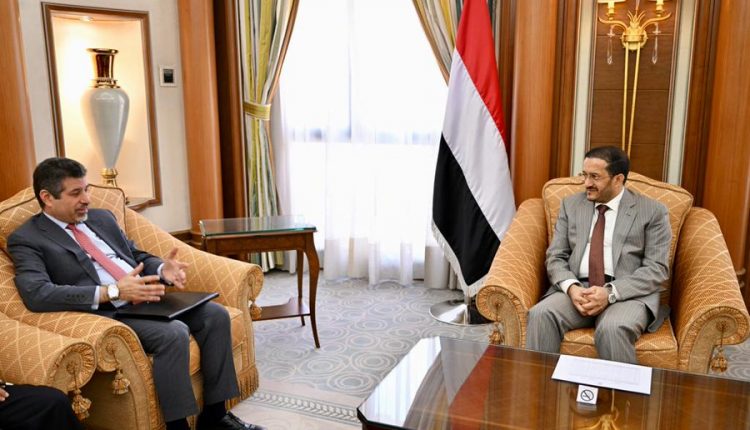Amid escalating actions by the US ambassador to the mercenary government, Steven Fagan, which come in the context of the United States' insistence on continuing the war, the blockade, and obstructing peace efforts, pro-enemy media outlets revealed communications between the aggressor countries and their mercenaries to tighten the criminal blockade imposed on the port of Hodeidah, in order to blackmail Sana'a into backing down from its negotiating stance and allowing the plunder of national resources.
Pro-mercenary media outlets affiliated with the "Islah Party" said that the mercenary government contacted Saudi Arabia to tighten restrictions on the arrival of ships and goods to the port of Hodeidah, as a means of pressuring Sana'a to allow the mercenaries to resume looting and smuggling crude oil out of the country and stealing its revenues.
This move comes in parallel with a deceptive campaign sponsored by the United States and its ambassador to the mercenaries, Steven Fagan, to accuse Sana'a of being behind the economic and living crisis in Yemen, using this as a justification for escalating the war and blockade against the Yemeni people.
The US ambassador has recently intensified his movements and meetings with the leaders of the mercenary government, in parallel with the continuation of the United States' push to obstruct peace efforts that are supposed to lead to the lifting of the blockade and enabling the Yemeni people to exercise their legitimate rights.
Although the mercenary media outlets said that Saudi Arabia did not express agreement on what the mercenary government requested, this does not change the fact that there is a clear direction sponsored by the United States to continue or tighten the arbitrary blockade measures, which Riyadh also seems to be in harmony with, by insisting on stalling the implementation of the Yemeni people's demands, including lifting the blockade on Hodeidah port and Sana'a International Airport.
Recently, the enemy's media outlets and their mercenaries began to promote deceptive campaigns holding Sana'a responsible for the salary cuts, by claiming that the national wealth protection operations are the cause, although the aggressor alliance and their mercenaries were refusing to deliver salaries even before the launch of wealth protection operations, which means that these campaigns aim to stir up public opinion and create pressure on Sana'a to back down from its stance.
This was also confirmed by the repeated accusations made by the United States recently, accusing Sana'a of being behind what it called the "economic war," as these misleading accusations clearly reveal that Washington is seeking to distort facts and create justifications for continuing aggression and tightening blockade measures against the Yemeni people.
In addition to what the media outlets have revealed, the mercenary government had previously officially announced that it would "take additional measures" in the economic field, calling on Saudi Arabia and the UAE to support these measures and also asking the international community to support it in facing what it called the "economic war," which may indicate a direction towards adopting escalating economic measures under American sponsorship.
The mercenary government's demand for the aggressor countries to tighten the blockade measures on the port of Hodeidah reveals the validity of Sana'a's stance, which refuses to compromise on humanitarian entitlements, including lifting all restrictions on airports and ports. This blatant demand confirms that the enemy parties insist on using the humanitarian file as a blackmail and pressure card to obtain other gains, which means the absence of any seriousness in moving towards actual peace.
The United States has expressed its rejection of the humanitarian demands of the Yemeni people more than once during the past period. Its envoy to Yemen, Tim Lenderking, confirmed that Washington does not see any possibility of addressing the salary and resource files except through the participation of the mercenary government as a main party in the negotiations. This was also reinforced by recent statements by US Secretary of State Antony Blinken, which means that Washington insists on linking the humanitarian entitlements of the Yemeni people to political gains that keep the door open for continuing aggression, blockade, and occupation - a stance that Sana'a firmly rejects.







